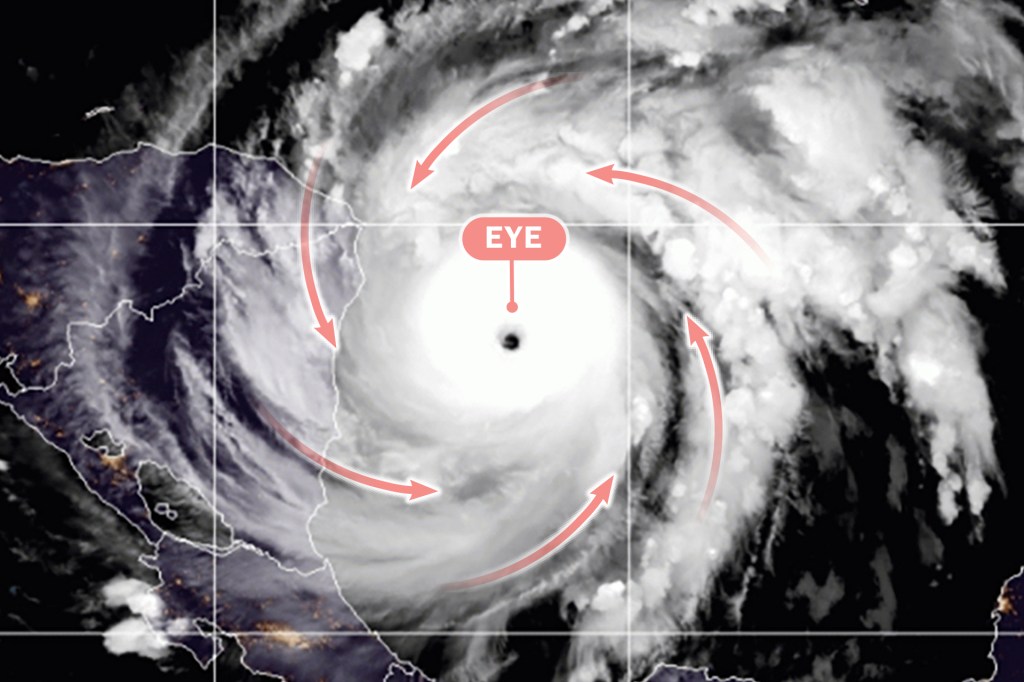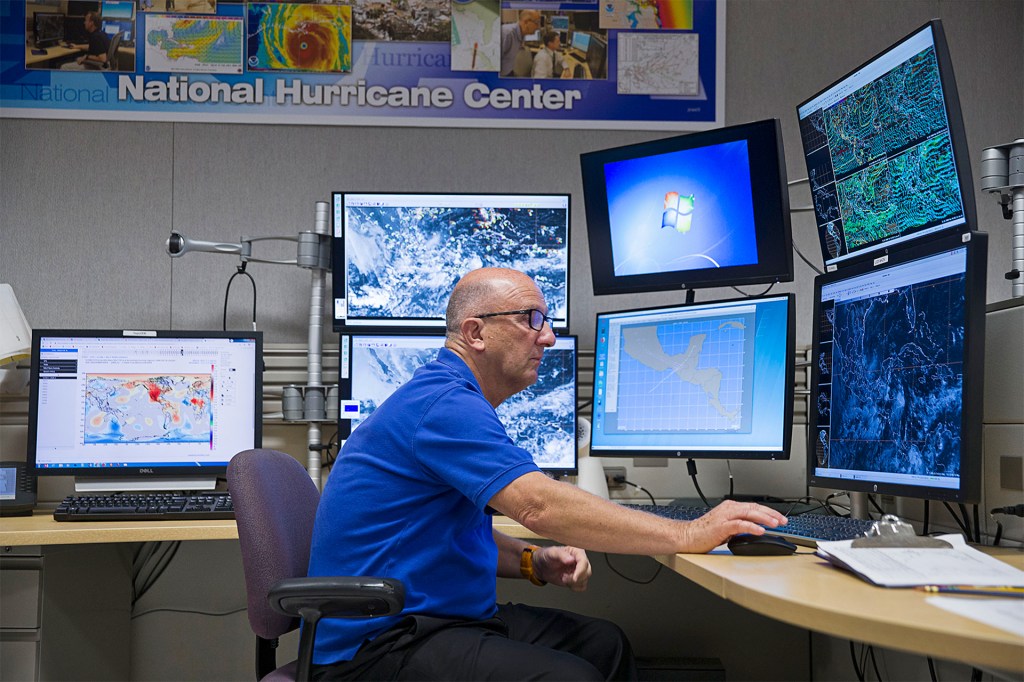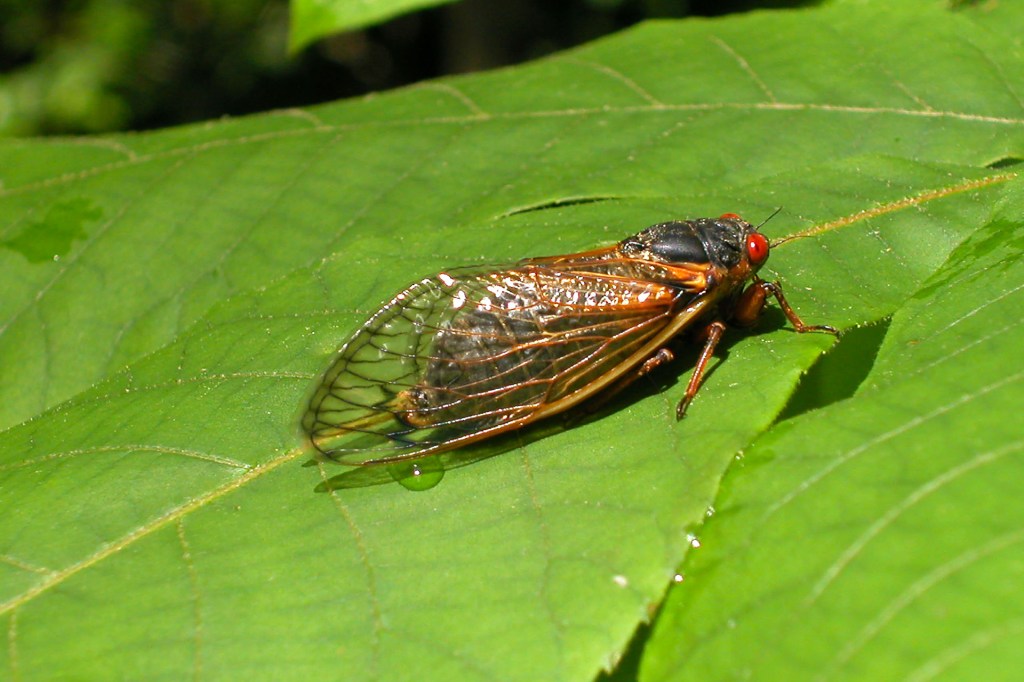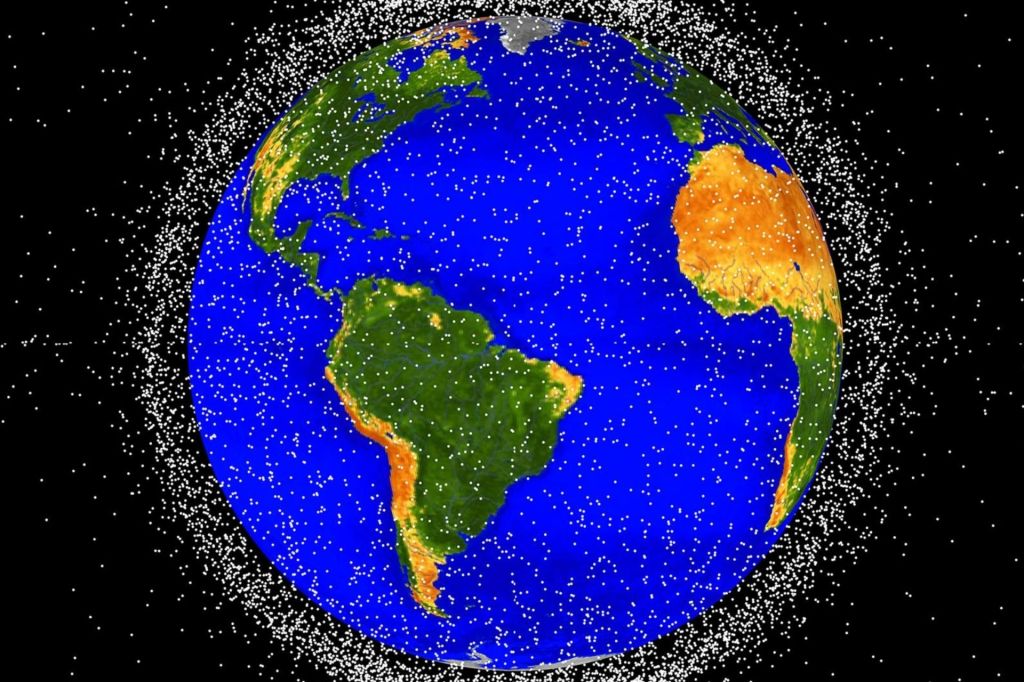
A hurricane is a mass of clouds and thunderstorms. It spins around a still center. The center is called the “eye.” A hurricane is like a giant engine. It uses warm air as fuel. There’s plenty of that in the Atlantic Ocean during hurricane season.
A hurricane starts as a tropical storm. It’s called a hurricane when winds reach 74 miles per hour. Then the hurricane is rated. It gets a number, 1 to 5. The number depends on wind speed. A Category 5 hurricane is the strongest. Winds can top 157 miles per hour. This storm can cause great damage.
The National Hurricane Center (NHC) is located in Florida. Its scientists watch the oceans. They study images from satellites in space. They use computers to analyze data. They let people know if a big storm is on the way.

A scientist at the National Hurricane Center watches an Atlantic storm on his monitor.
JOE RAEDLE—GETTY IMAGES
The NHC also sends airplanes into hurricanes. The planes bounce on strong winds. They fly straight into a storm’s eye. Scientists on board collect data. “There’s none better than the NHC when it comes to forecasting hurricanes in real time,” James P. Kossin says. “It helps emergency planners prepare for a busy season.”












